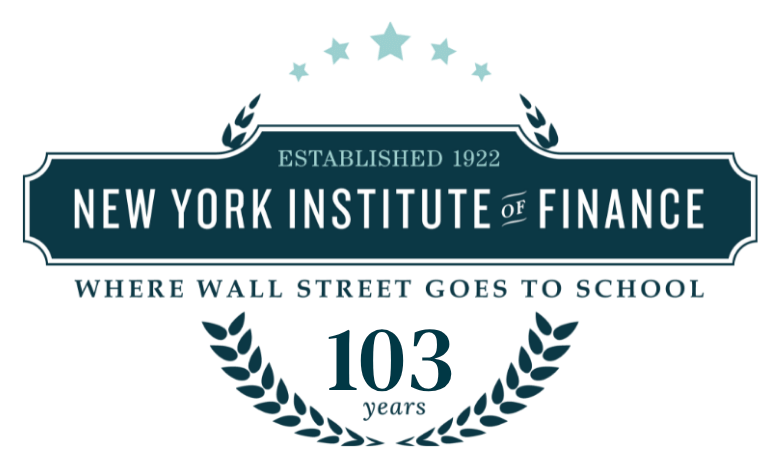"Spoofing" and Disruptive Futures Trading Practices
An article by New York Institute of Finance futures instructor Larry Schneider.
This Is No Joke. I wouldn't Want to "Spoof" You.
In 2010, Congress passed the Dodd-Frank Wall Street Reform and Consumer Protection Act. The Act required new standards in the regulation of futures trading, particularly disruptive trading practices, anti-manipulation and setting position limits. The legislation enhanced the CFTC's ability to prosecute price and market manipulation; with the objective of promoting the integrity of the markets and to protect market participants.
The Dodd-Frank Act also amended section 4c(a) of the Commodity Exchange Act (CEA) to make it unlawful for any person to engage in any trading practice or conduct which violates bids or offers; or demonstrates intentional or reckless disregard for the orderly execution of transactions during the closing period. This illegal activity is known as spoofing.
Spoofing and Disruptive Trading Practices
Spoofing is defined as bidding or offering with the intent to cancel the bid or offer before execution, submitting or cancelling bids and offers to overload the quotation system of a marketplace; or to submit multiple bids or offers to create the appearance of false market depth. Spoofing is considered a disruptive trading practice and is viewed as "unlawful" under Section 4c(a) of the Commodity Exchange Act.
The Federal Energy Regulatory Commission, which shares certain energy markets regulatory oversight with the CFTC, has also said it would find “spoofing” a manipulative practice in trading wholesale natural gas and electric products.
In what is shaping up to be a closely followed case filed several months ago in United States District Court (U.S. Commodity Futures Trading Commission v. Eric Moncada), the government alleges Moncada engaged in the manipulative scheme called spoofing, by manipulating bids and offers to create a false impression of market liquidity, the result being actual prices which did not reflect the economic fundamentals of supply and demand.
So spoofing is a manipulative activity which often has the following elements:
- Large-lot orders are placed without the intent of being filled (executed); but instead with the intent to create a misleading impression of increasing liquidity in the market; and/or
- Large-lot orders placed at or near the best bid (or best offer) price in a manner to avoid being filled in the marketplace; and/or
- Small-lot orders placed on the opposite side of the market from large-lot orders placed by the same trader, with the intent of taking advantage of any price movements that might result from the misleading impression of increasing liquidity that the large-lot orders created.
- The CFTC takes the same reading of the statute, and plans to interpret the prohibition under section 4c(a)(5)(A) as creating a “per se offense” – i.e., one where no proof of intent is required. Thus, traders who violate bids or offers may be liable under this subsection regardless of whether they do so intentionally or negligently (or even through no fault of their own).
The concern among trading and brokerage firms, is that the CFTC will interpret the prohibition under section 4c(a)(5)(A) as creating a “per se offense” – i.e., one where no proof of intent is required. What this means is that CFTC could bring prosecution against traders who violate bids or offers (under this subsection) whether they did so with the deliberate intention of manipulating markets and prices, or even if their actions lacked a criminal intent, through no fault of their own.
About New York Institute of Finance
With a history dating back more than 90 years, the New York Institute of Finance is a global leader in training for the financial services and related industries with course topics covering investment banking, securities, retirement income planning, insurance, mutual funds, financial planning, finance and accounting, and lending. The New York Institute of Finance has a faculty of industry leaders and offers a range of program delivery options including self-study, online and in classroom.
For more information on the New York Institute of Finance, visit the homepage or view in-person and online finance courses below:
